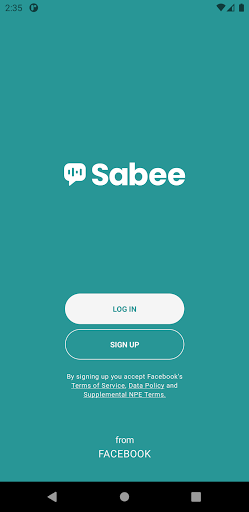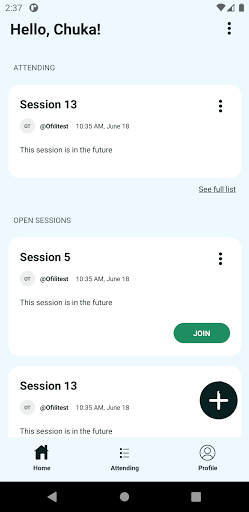Facebook to target Nigerian learners with educational app Sabee, created by its R&D team
Last fall, Facebook announced it was opening an office in Lagos, Nigeria, which would provide the company with a hub in the region and the first office on the continent staffed with a team of engineers. We’ve now spotted one of the first products to emerge from this office: an education-focused mobile app called Sabee, which means “to know” in Nigerian Pidgin. The app aims to connect learners and educators in online communities to make educational opportunities more accessible.
The app was briefly published to Google Play by “NPE Team,” the internal R&D group at Facebook, which has typically focused on new social experiences in areas like dating, audio, music, video, messaging and more.
While the learnings from the NPE Team’s apps sometimes inform broader Facebook efforts, the group hasn’t yet produced an app that has graduated to become a standalone Facebook product. Many of its earlier apps have also shut down, including (somewhat sadly), the online zine creator Eg.g, video app Hobbi, calling app CatchUp, friend-finder Bump, podcast community app Venue, and several others.
Sabee, however, represents a new direction for the NPE Team, as it’s not about building yet another social experiment.
Instead, Sabee is tied to Facebook’s larger strategy of focusing more on serving the African continent, starting with Nigeria. This is a strategic move, informed by data that indicates a larger majority of the world’s population will be in urban centers by 2030, and much of that will be on the African continent and throughout the Middle East. By 2100, Africa’s population is expected to have tripled, with Nigeria becoming the second-most populated country in the world, behind China.

Image Credits: Facebook NPE Team
To address the need to connect these regions to the internet, Facebook teamed with telcos on 2Africa, a subsea cable project that aims to serve the over 1 billion people still offline in Africa and the Middle East. These aren’t altruistic investments, of course — Facebook knows its future growth will come from these demographics.
Facebook confirmed its plans for Sabee to TechCrunch after we discovered it, noting it was still a small test for the time being.
“There are 50 million learners, but only 2 million educators in Nigeria,” said Facebook Product Lead, Emeka Okafor. “With this small, early test, we’re hoping to understand how we can help educators build communities that make education available to everyone. We look forward to learning with our early testers, and deciding what to do from there.”

Image Credits: Facebook NPE Team
The disparity between learners and educators in Nigeria greatly impacts women and girls, which is another key focus for Sabee — and the NPE Team’s efforts in the region as a whole. The company also wants to explore how to better serve groups who are often left behind by technology. On this front, Sabee is working to create an experience that works with low connectivity, like 2G.
We understand the app is currently in early alpha testing with fewer than 100 testers who are under NDA agreements with Facebook. It’s not available for anyone else beyond that group at present, but the company hopes to scale Sabee to the next stage before the end of the year.
There is no way to sign up for a Sabee waitlist, and the app is no longer public on Google Play. It was available so briefly that it was never ranked on any charts, app store intelligence firm Sensor Tower confirmed to us.
We should note that “sabee” and “sabi/sabis” have other, less-polite meanings in different languages, per Urban Dictionary. But the team has no plans to change the name for now as it makes sense in the Nigerian market where the app is targeted.
from TechCrunch https://ift.tt/3dmJNBI
Comments
Post a Comment